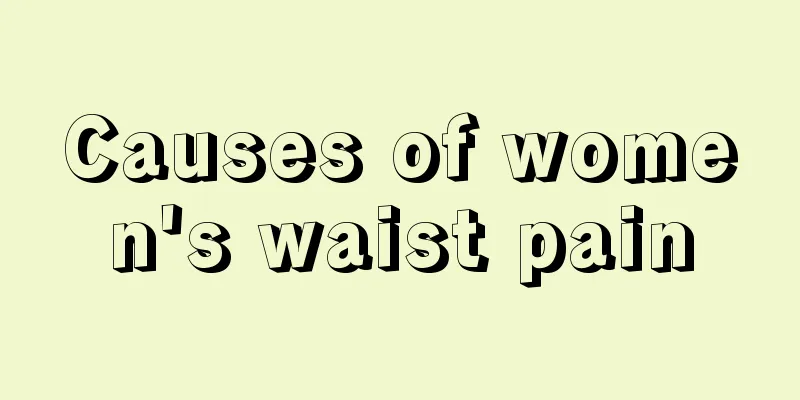What are the harms of hysterectomy to women?

|
The uterus is one of the most important reproductive organs for women and is the cradle of life. Therefore, the uterus is of great significance to women. In modern life, many women face major health problems, among which reproductive organ problems have the greatest impact. For example, diseases such as uterine cancer can endanger women's lives, and the uterus must be removed after the disease. So, what are the harms of uterine removal to women? The uterus is a characteristic of women and an important organ in the female reproductive system. As we all know, the uterus is an essential organ for maintaining menstruation and female fertility under the regulation of various hormones in the female body; at the same time, the uterus is also an endocrine organ with complex functions. Many biologically active substances secreted by the uterus can participate in the regulation of local and systemic physiological and pathological processes. Therefore, hysterectomy undoubtedly brings many negative effects on the patient's physical, psychological and life adaptation after surgery.1. Hysterectomy not only destroys the dynamic endocrine balance between the uterus and ovaries before menopause, but also causes ovarian function decline. Since a considerable part of the blood supply to the ovaries comes from the ascending branches of the uterine arteries, although hysterectomy in premenopausal women tries to preserve ovarian tissue, the ligation of adjacent blood vessels will still affect the blood supply to the ovaries, thereby reducing ovarian function and causing a sudden drop in serum estrogen levels. There is a lack of a gradual adaptation process, so menopausal symptoms occur significantly earlier. 2. Most women will experience varying degrees of decreased sexual function after a hysterectomy, which is mainly manifested by: lack of sexual desire, reduced frequency of sexual intercourse, difficulty in orgasm, etc. In the past, there has been little research on sexual life issues after hysterectomy. The reasons are many, such as patients are often ashamed to talk about sex, and doctors have no time to take care of or ignore it. It is now gradually recognized that the patient's sexual harmony and health after surgery will also involve the consolidation of marriage and family. Therefore, the issue of sexual life cannot be ignored for women of any age after hysterectomy. However, another group of patients may experience improved quality of sexual life. This is mostly related to the patient's related diseases before the operation, such as severe anemia, back or pelvic pain caused by preoperative uterine fibroids, abnormal menstrual bleeding, endometriosis, etc., which are relieved after surgical removal of the uterus. The sexual function problems caused by these factors are also alleviated, and sexual function, overall health status and quality of life will also be improved. In addition, the quality of sex life of some women will also improve because they no longer have to worry about pregnancy. |
<<: Is it harmful to take too much progesterone?
>>: What's the matter with a small fleshy lump on the vulva?
Recommend
A series of discussions on kidney-tonifying and anti-aging: Waist and leg aging are not exclusive to the elderly
Usually, people's muscles and bones are most ...
What to do if your girlfriend is frigid
Sex life is very important for couples. High-qual...
What are the methods to reduce face and chin?
Winter is the season for gaining weight. The weat...
How long does the amniocentesis procedure take?
Amniocentesis is a very common examination method...
What causes bleeding gums in pregnant women?
Pregnant women bear the heavy responsibility of i...
Doctor’s reminder: If you have lung problems, be sure to tell your doctor the truth, otherwise big problems may arise!
As the number of patients increases day by day, h...
When is the best time to do fallopian tube insufflation?
The main reason why women have difficulty getting...
Is it better to have a medical abortion or a surgical abortion at 35 days of pregnancy?
Some unmarried pregnant women have been undecided...
How to check for uterine and fallopian tube adhesions
We all know that children are very important to a...
Why do women feel stinging pain after urinating?
Women are more susceptible to germs, which is rel...
Do you know what you should pay attention to during the third trimester of pregnancy?
Dear expectant mothers, do you know what you shou...
How painful is abortion?
Because everyone's tolerance is different, th...
Why are uremia cases increasing? Take this advice: Don’t be greedy for these four things, your kidneys will thank you!
In recent years, the incidence of uremia in my co...
What are the precautions during polycystic ovary syndrome?
Polycystic ovary disease is very scary for women....
The Delta variant of the novel coronavirus is fighting back strongly. Prevention needs to learn from the real-world data of vaccines
Is it necessary to get a third booster shot? Who ...









